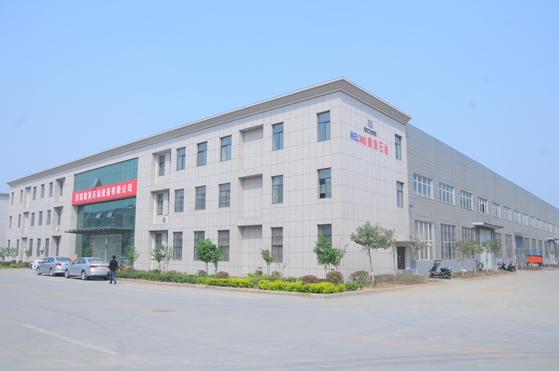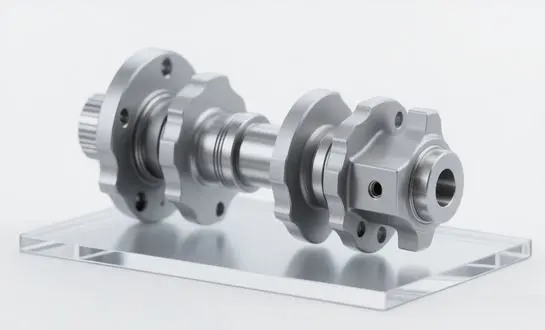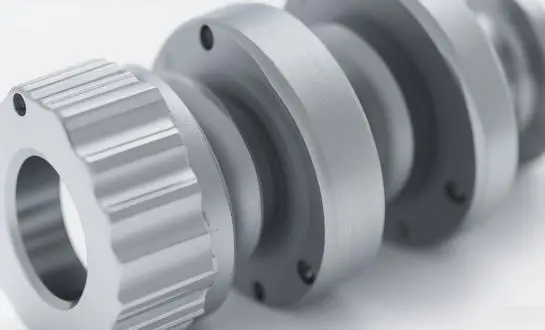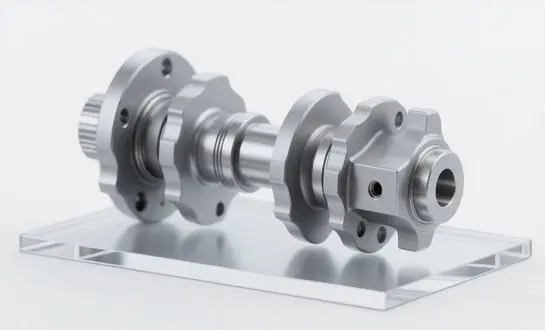Balancing Weight and Rigidity: Drill Collar Physics
The efficiency of drill collars in deep well operations is based on their physics. Maintaining control and efficiency during drilling relies on these components' careful balance of weight and stiffness.
Weight Distribution and Bit Load
Applying pressure to the drill bit is a key role of drill collars. The products guarantee that the bit receives enough force to pierce even the toughest rock formations by concentrating mass towards the bottom of the drill string. Drilling speeds are optimised and the drill string is protected from excessive stress by carefully calculating this weight distribution.
Bending Resistance and Hole Stability
Drill collars are particularly stiff because of their large walls. In directional drilling operations in particular, this rigidity is critical for keeping the borehole straight. The goods aid in accurately reaching the target formation by preventing undesired wellbore route variations caused by bending forces.
Vibration Damping
Diverse geological formations, each with its own properties, are often encountered by deep well drillers. These modifications may produce vibrations in the drill string, which can harm both the equipment and the drilling efficacy. All operations are kept running smoothly and the rest of the drilling assembly is protected since these objects absorb and release vibrations naturally.
Precision Control: Drill Collars vs. Standard Pipes
When comparing drill collars to standard drill pipes, the advantages become clear, especially in the context of deep well operations.
Enhanced Weight-on-Bit Control
When compared to regular pipes, drill collars provide far more control over the force exerted on the drill bit. Because formation pressures and rock hardness may vary greatly in deep wells, this exact control is critical. Drilling speeds may be optimised and equipment can be protected from excessive wear and damage by adjusting the weight-on-bit.
Improved Directional Drilling Capabilities
It is critical in directional drilling to keep the wellbore trajectory as intended. The increased bulk and stiffness of drill collars allows for more precise control of the tool face in directional assemblies. The bottomhole assembly may be more precisely guided by this improved control, leading to less severe dogleg and smoother wellbore profiles.
Resistance to Buckling
The drill string is subjected to significant compressive stresses during deep well operations. Poor weight transmission and string failure may result from standard pipes buckling under these situations. Drill collars provide constant performance at considerable depths due to their thick walls and better buckling resistance, which allow them to preserve their integrity even under intense compressive stresses.
Maximizing Efficiency: Selecting the Right Drill Collar
Choosing the appropriate drill collar configuration is crucial for maximizing drilling efficiency and ensuring successful deep well operations.
Material Considerations
Drill collars are typically manufactured from high-strength materials such as AISI 4145H or its modified versions. These alloys offer an excellent balance of strength, toughness, and wear resistance. For specialized applications, non-magnetic drill collars made from austenitic stainless steel or monel alloys are available, particularly useful in wells requiring precise directional control or magnetic surveying.
Size and Length Selection
The diameter and length of drill collars must be carefully selected based on the well design and operational requirements. Larger diameter collars provide more weight and stiffness but may limit fluid flow and increase the risk of differential sticking. Optimal collar length is determined by factors such as desired weight-on-bit, borehole stability concerns, and directional control needs.
Surface Features
Drill collars come in various surface configurations, including slick (smooth) and spiral designs. Spiral drill collars feature helical grooves that can aid in reducing differential sticking and improving fluid circulation. The choice between slick and spiral collars depends on the specific well conditions and drilling objectives.
Quality Control and Inspection
It is essential to guarantee that drill collars are both functional and secure. Dimensional assessments and non-destructive testing are two of the most imperative quality control strategies. Items are more likely to final longer between reviews and support, which in turn progresses penetrating execution and decreases the probability of disappointment.
Conclusion
When drilling in deep wells, drill collars are crucial because they provide the control, stiffness, and weight that is required for precise and effective drilling. Their adaptability, precise control, and ability to balance the complicated physics of deep drilling make them an essential part of current oilfield technology. The importance of the goods in guaranteeing efficient, safe, and effective operations is growing as we dig deeper down the wells to explore.
Call to Action
For top-quality drill collars that meet the demanding requirements of deep well operations, look no further than Welong. Our broad encounter in fabricating oilfield items, coupled with our commitment to quality and advancement, guarantees that you get the items that surpass industry measures. Whether you need slick or spiral drill collars, made from standard or non-magnetic materials, Welong has the expertise to deliver. Our strict quality control processes, ISO 9001:2015 and API 7-1 certifications, and customized services guarantee that you'll receive products tailored to your specific operational needs. Don't compromise on the backbone of your drilling assembly – choose Welong for the products that stand up to the toughest deep well challenges. Contact us today at oiltools15@welongpost.com to discuss how we can support your drilling operations with our superior products and comprehensive supply chain solutions.





